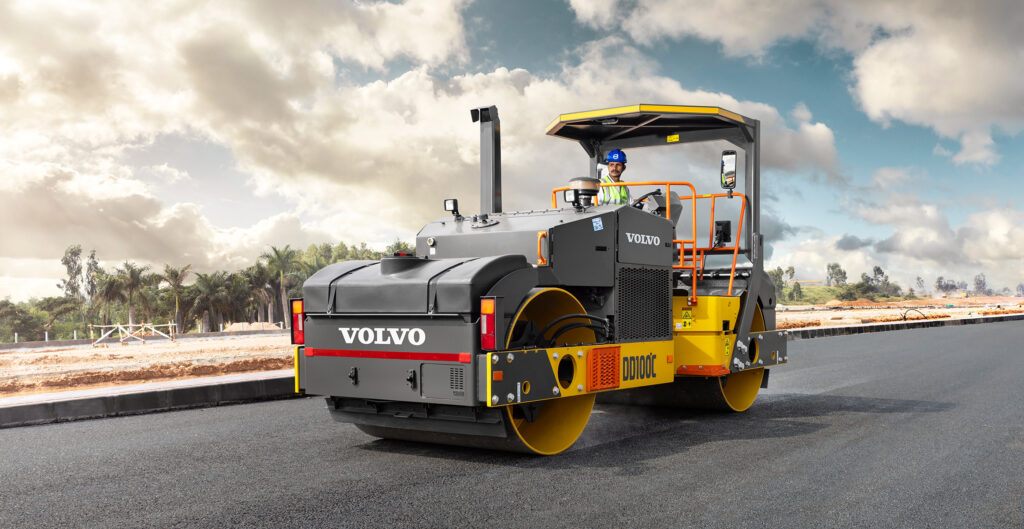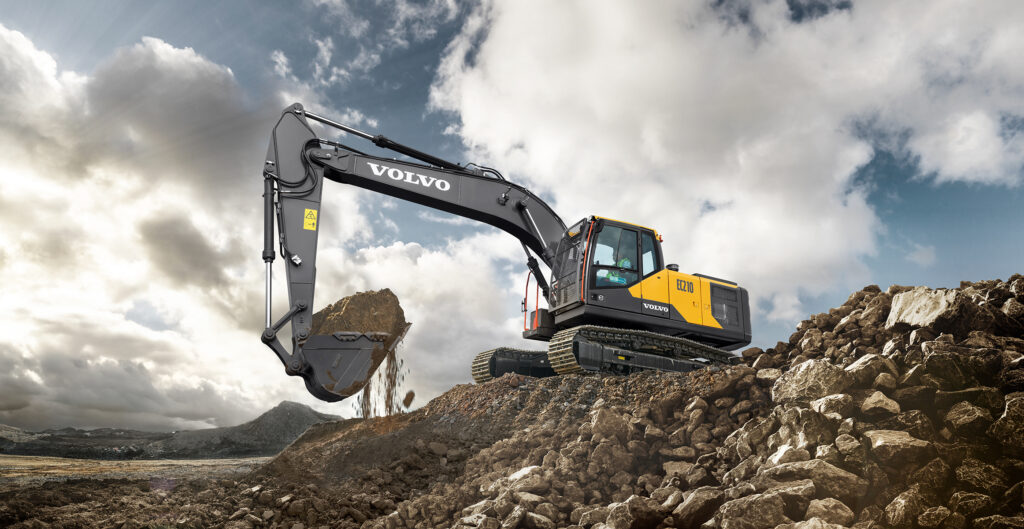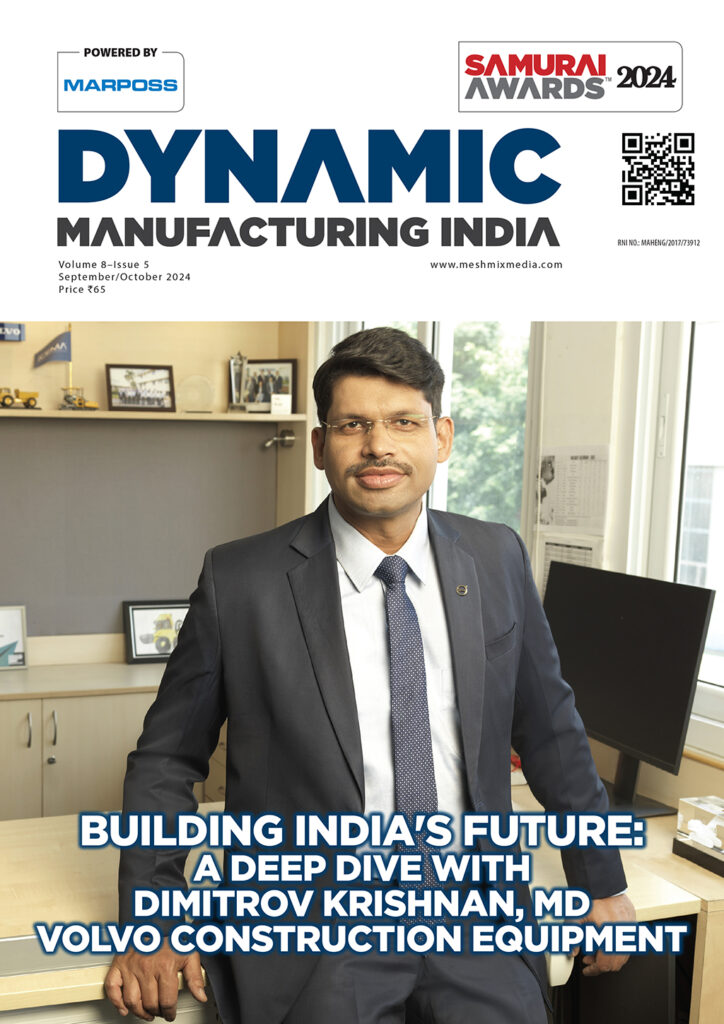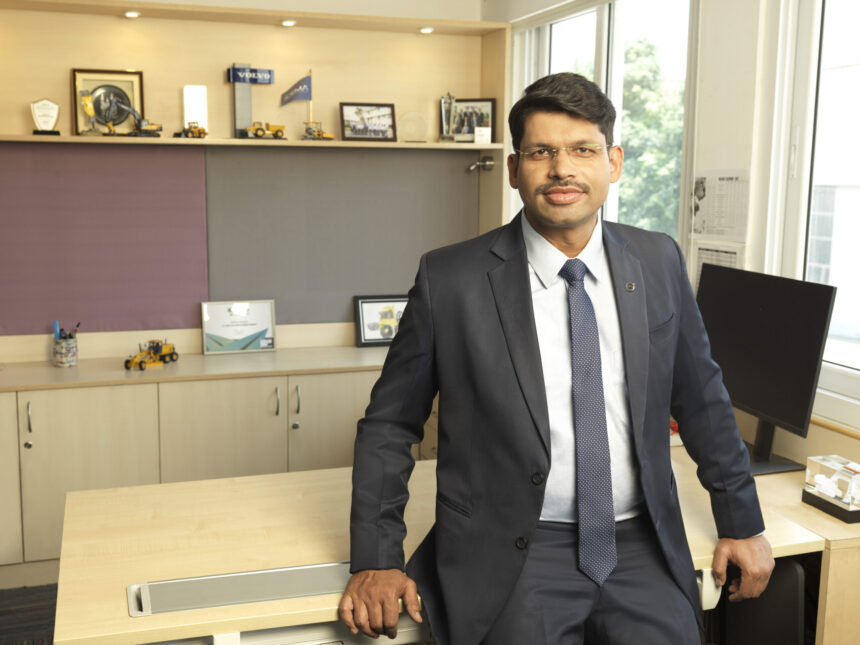Exploring Innovation, Sustainability, and Market Leadership in the Indian Construction Landscape
1. Can you start by giving us a brief history of Volvo Construction Equipment’s presence in India and its journey so far?
Ans: We have been present in India for over 25 years and have played a pioneering role in the Indian construction equipment industry. Headquartered in Bangalore, Volvo CE India operates a robust sales and service network across the country through its three regional offices in Mumbai, Delhi, and Kolkata. We serve customers nationwide via 19 dealers, providing over 300 touchpoints, including dealer branches and service workshops, ensuring comprehensive coverage and support. We have created a substantial market presence through a broad understanding of customer needs and our relentless pursuit to deliver efficient, cost-effective products and service solutions. We present ourselves as a complete solutions provider with extremely fuel-efficient products and superb uptime and after-sales service to enable customers to complete their projects on time and reduce costs.
2. What sets Volvo Construction Equipment apart from its competitors in the Indian market?
Ans: Our products are known for incorporating cutting-edge technology and innovations, offering a powerful combination of high performance and sustainability. This commitment positions Volvo CE as a preferred choice for businesses seeking reliability, efficiency, and eco-friendly solutions. What sets us apart from our competitors in the Indian market is our unwavering focus on fuel efficiency, maximum uptime, and outstanding after-sales service. These pillars enable our customers to significantly reduce operating costs, enhancing overall project efficiency.
3. Volvo is known for its advanced construction equipment. Can you tell us about some of the flagship products you offer in India?
Ans: We offer a diverse range of construction equipment, including excavators, wheel loaders, and road-building products such as soil and asphalt compaction. Some of the notable flagship products of Volvo CE include the EC210 Hydraulic excavator used for the urban infrastructure, mining, and bulk material handling segments, and L120 Electric Wheel Loader, which was unveiled at the EXCON 2023. This product is a testament to our sustainability and electrification philosophy, boasting unmatched productivity and lower emissions.

4. How does Volvo integrate cutting-edge technology and innovation into its construction equipment?
Ans: Our key strength is the implementation of innovative technologies in our machines, such as IoT, AI, machine learning, and more, with the aim of increasing productivity and efficiency. Additionally, the focus now is on the design and creation of machines that ensure efficiency in terms of fuel, uptime, and comfort for operators. VECV 494 T3 Electronic Engine used in a machine like EC210 is a powerful hybrid which includes heavy hydraulic and highly efficient controls for maximum performance in low RPM, which reduces fuel consumption and maintenance. This electric range of our excavators and wheel loaders uses lithium-ion batteries, thereby underlining the thrust of sustainable innovation by Volvo.
5. Can you explain how Volvo’s equipment contributes to improving efficiency and productivity on construction sites?
Ans: The machines from Volvo integrate leading-edge technologies such as AI-based predictive maintenance, IoT connectivity, and fuel-efficient engines. Through such innovative technologies, real-time data visibility on the performance of these machines is assured, reduced consumption of fuels, and preventive unexpected downtime. Our products are focused on improving productivity and efficiency through engineering their machines for uptime, comfort to the operator, and better hydraulics, that would enable operators to achieve more in less time and with reduced operational costs.
6. How does Volvo tailor its products and services to meet the specific needs of the Indian market?
Ans: We are customer focused, which means being in constant communication with clients and understanding their needs, so that the equipment is customized. We have made localization efforts by manufacturing in India so that our products are optimized to local conditions and requirements. Our products come along with advanced service support, and hence, are fuel-efficient.

7. Can you discuss Volvo’s market strategy and how you plan to expand your presence in India?
Volvo CE has a strong market presence in India, particularly in highly productive segments like mining, quarry and aggregates, and large-scale irrigation projects. Moving forward, we plan to expand by introducing more India-specific products tailored to local needs. A key part of this strategy includes launching a new lineup of compaction equipment that meets the upcoming Stage V emission norms.
We are also driving innovation through our eMobility solutions and “Equipment as a Service” offerings, which will enhance operational flexibility for our customers. Additionally, we remain committed to traditional services, with a focus on data-driven solutions like our Uptime & Productivity Services. These services are designed to help our customers increase site efficiency and maximize equipment uptime, ultimately contributing to their business growth.
8. Sustainability is a major focus for Volvo. How does Volvo Construction Equipment contribute to sustainable construction practices in India?
Ans: Sustainability is at the core of Volvo CE’s operations. We drive innovation through eco-friendly designs, promoting construction solutions powered by electric drivetrains and lithium-ion batteries. Not forgetting exciting technologies like hydrogen fuel cells, energy recuperation systems, and even electric machinery in grid connections. Focus on fossil-free steel and assuring battery circularity are testimonials of our commitment to sustainability in the construction industry.
9. Can you talk about any specific initiatives or technologies that Volvo is using to reduce the environmental impact of its equipment?
Ans: Volvo CE is committed to reducing its environmental footprint through electric-powered machinery and hydrogen fuel cell technology. Our portfolio features electric machines powered by Lithium-ion batteries and energy-efficient systems like advanced hydraulics. We’ve also partnered with SSAB to incorporate fossil-free steel into our manufacturing process. Embracing the circular economy, we focus on component remanufacturing and recycling. Additionally, our telematics solutions optimize fuel consumption while monitoring CO2 emissions in real-time.
10. Customer support and after-sales service are crucial in the construction equipment industry. How does Volvo ensure excellent service and support for its customers in India?
Ans: Our comprehensive aftermarket services portfolio is designed to optimize equipment performance, maximize utilization, and minimize operating costs. This integrated offering comprises four key service pillars: Uptime Services, Safety Services, Fuel Efficiency Services, and Productivity Services. Backed by our extensive PAN India service network, we deliver swift support to meet every customer’s needs, ensuring timely response and unparalleled support.

12. Skilled operators are essential for the effective use of construction equipment. How does Volvo contribute to training and developing the workforce in India?
Ans: We invest in skill-building through tie-ups with schools, colleges, and government institutions. We run multiple training programs; among them is the ‘Operator on Wheels,’ where we train operators using a truck-mounted simulator on how best to effectively use Volvo equipment. We have also collaborated with the Infrastructure Equipment Skill Council (IESC) and have developed training programs on their manufacturing facility in Bengaluru as well as on customer sites.
13. Are there any specific training programs or partnerships that Volvo has established in India?
Ans: Volvo CE has built several workforce development partnerships, with one of the major collaboration programs being with the Infrastructure Equipment Skill Council (IESC), where we assist in training and qualifying machine operators. Another example is our ‘’Operator on Wheels’ program, taking mobile simulators to the operators for training on-ground so they can acquire the necessary skills for handling the complex machinery. We also partner with many educational institutions to conduct training specifically aimed at construction equipment operators and technicians.
14. What are some of the biggest challenges Volvo Construction Equipment faces in the Indian market, and how do you address them?
Ans: One of the biggest challenges that we have been facing in India is the increasing cost of raw materials and supply chain disruptions due to geopolitical tensions. As inflation and regulatory changes add pressure to profitability, we are striving to localize production in India, which lowers costs and allows for more direct access to materials. Building a strong supply chain and improving buffer stocks will help mitigate any supply-related disruptions.

15. What opportunities do you see for growth and innovation in the Indian construction equipment sector?
Ans: The Indian construction equipment sector offers tremendous opportunities for growth, driven by government-backed infrastructure projects and rapid urbanization, which are expected to fuel exponential demand. A key area of focus for us lies in green technologies, particularly as the push for electric and zero-emission machinery intensifies. Additionally, there is vast potential to enhance operational efficiency across projects through emerging digitalization trends such as data analytics, telematics, and automation. At Volvo CE, we are committed to investing in research and development to drive innovation in these fields and meet the evolving needs of the Indian market
16. What are Volvo Construction Equipment’s short-term and long-term goals for the Indian market?
Ans: In the short term, our goals focus on strengthening customer relationships, promoting sustainable construction practices, and fully embracing digital transformation. Long term, we aim for sustainable growth by introducing more electric and fuel-efficient equipment while increasing the market share of our electric products. By 2030, Volvo CE is targeting 35% of its sales to come from fully electric machines and achieving net-zero emissions across the value chain by 2040.
17. Can you share any upcoming projects, new products, or innovations that Volvo is planning to introduce in India?
Ans: For us at Volvo CE, sustainability drives innovation. At Volvo CE, sustainability drives innovation. We’ve expanded our electric equipment portfolio with the L120 Electric Wheel Loader and DD40 Electric Mini Asphalt Compactor, showcased at EXCON 2023. Additionally, we’re developing grid-connected electric excavators and compactors, designed in India for both local and global markets, reinforcing our commitment to greener, zero-emission solutions.
Our focus on electric equipment strengthens our position as a leader in eco-friendly manufacturing. We recently launched the EC210, a ‘Built for Bharat’ 20-tonne hydraulic excavator, setting new standards in performance and efficiency for the Indian market. We’re also introducing more India-specific mid-range products tailored to diverse applications across the region.
18. What has been the most rewarding part of working with Volvo Construction Equipment in India?
Ans: The most rewarding part of working with Volvo Construction Equipment in India has been witnessing our team’s commitment to innovation and excellence in a rapidly evolving industry. I take great pride in the collaborative spirit and passion of our employees, which drives us to deliver high-quality products and services that meet the unique needs of our customers. Seeing the positive impact, we have on our customers’ success and contributing to the growth of the construction equipment sector in India reinforces my belief in our mission and vision.
19. What advice would you give to businesses or professionals looking to succeed in the construction equipment industry?
Ans) My advice for businesses and professionals in the construction equipment industry is to embrace innovation and adaptability. Stay attuned to market trends and customer needs, invest in sustainable solutions, and prioritize building strong relationships. Focusing on quality and customer service will set you apart in this competitive landscape.
Do Visit – https://www.volvoce.com/




